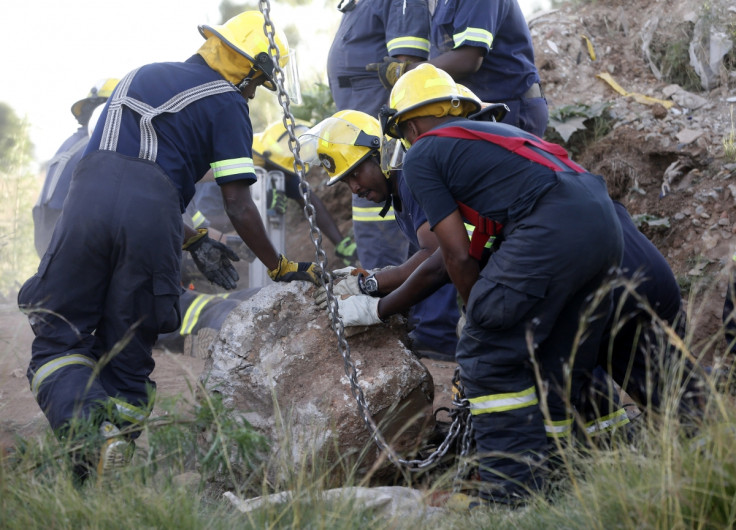South Africa: Illegal Mining Booms as Regular Industry Falls Into Decline

The countryside surrounding Johannesburg is marked by clusters of small apparently normal hills but beneath them hides a deadly and booming industry.
Known in Zulu as eGoli, the City of Gold, Johannesburg and its locality boast a wealth of untapped riches that draw thousands of men and women every day.
They work illegally, in unsafe conditions, often spending weeks at a time underground inhaling the poisonous gases that circulate the once-abandoned shafts.
The South African government estimates that 14,000 people are involved in illegal mining throughout the country, as the regulated industry endures a period of crisis and decline.
Costs in the regular mining sector have escalated over decades, while the gold itself has become harder to reach and extract.
The past two years have been marked by ad-hoc miners' strikes, including the now infamous strike at the Lonmin platinum mine in Marikana which resulted in the authorities shooting dead 34 people.
Mining represents 60% of South Africa's exports but clashes between mining companies and unions over wages have created instability that caused enough concern for ratings agencies to downgrade the entire country's debt in 2012.
This decline in the regular industry has fuelled the illegal mining sector, now booming under the hills that ring Johannesburg.
Speaking in February, South Africa's resources minister said that illegal mining has mutated into a mature criminal industry, worth 6 billion rand ($566m, £337m, €409m) annually. The government has vowed to crackdown on the practice by blocking up mine shafts and prosecute those caught working illegally.
The plan was put in to action in a high profile manner in February 2014, after 20 miners were rescued from an old mine east of Johannesburg. After the dramatic rescue, captured by the world's media, all were arrested for mining illegally.
But the threat of arrest is not stopping thousands of men seeking their fortune in the abandoned mines around the city.
Migrants arrive from across South Africa, where unemployment stubbornly hovers around 25%, and from neighbours like Lesotho, Mozambique and Zimbabwe. While they can earn around $5 a day, the prospect of striking a rich seam is the big draw that keeps the jobless heading underground.
The government estimates that 6,000 are involved in mining illegally underground, while a further 8,000 work above the surface. If the figure is accurate, these illegal miners make up around 10% of the entire workforce in the industry proper.
Life in the unregulated industry is beset by daily risks including rock falls, lack of safety equipment and the threat of robbery and violence, as gangs compete to control the mineral wealth that's left. Police say murders and prostitution are rife in the underground tunnels.
South Africa's Chamber of Mines said in a statement that "poverty, unemployment and large numbers of illegal immigrants in South Africa", are fuelling the illegal mining boom.
The body is working to introduce a fingerprinting system that can trace the origins of precious metals, while working with the international community to track down the buyers of illegally-gotten gold and platinum.
Those changes will take months, if not years to enforce. Meanwhile, thousands of men and women will continue to risk their lives under the hills around eGoli.
© Copyright IBTimes 2025. All rights reserved.






















